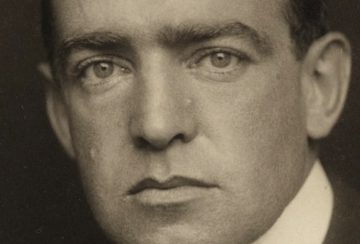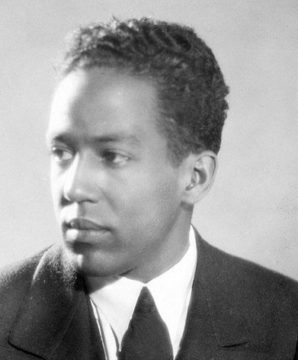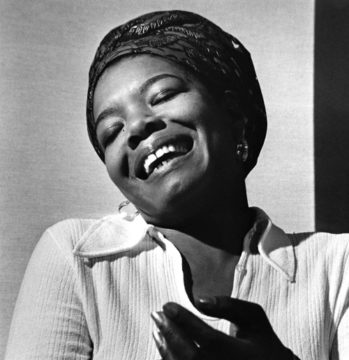by Tamuira Reid
The left is now rationing life-saving therapeutics based on race, discriminating against and denigrating, just denigrating white people to determine who lives and who dies. In fact, in New York state, if you’re white, you have to go to the back of the line to get medical help. If you’re white, you go right to the back of the line. —Donald Trump, January 2022
*In Memory of Neema J. (1945- 2020)
One
Neema could sing. Really sing. Thick songs with smooth edges, full of blood memory and knowing. I pressed my ear against the floorboards of our new apartment, the one we would shelter in during the height of a pandemic we didn’t know was coming. In-between moving boxes and piles of books, I lay listening, pressing my palms flat to the ground. The steam pipes rattling alive with each husky note.
Neema was also crazy, people in the building would tell me, in hushed, apologetic tones. “Not right in the head.” “Not all there.” “Gone.”
“Dementia,” the Super said flatly, after I called him in the middle of the night, called about the smell of something burning beneath me, one floor down. The smell of a slow burn, a deep burn. A castiron skillet left unattended for hours burn. Neema’s mind had become a slippery slope where important details often fell to the wayside.
Singing never left her, even as her mind closed shop. Songs took root like trees in her belly.
I learned if I turned the lights off, I could hear her better. Read more »


 From the gatherings at Ashis Nandy’s home, and particularly from my numerous discussions with him I learned to think a bit more carefully about three major social concerns in India.
From the gatherings at Ashis Nandy’s home, and particularly from my numerous discussions with him I learned to think a bit more carefully about three major social concerns in India. My friend Agnes Callard
My friend Agnes Callard  Our species owes a lot to opposable thumbs. But if evolution had given us extra thumbs, things probably wouldn’t have improved much. One thumb per hand is enough.
Our species owes a lot to opposable thumbs. But if evolution had given us extra thumbs, things probably wouldn’t have improved much. One thumb per hand is enough. Every medium of communication has its own attentional norms. Like all tacit rules that govern behavior, they get violated, but the violators typically act deliberately. For instance, the people who talk aloud in the movie theater typically aren’t ignorant of the norms; they transgress them for the lulz. Human beings are extremely skilled at recognizing and internalizing the norms of any given medium or environment.
Every medium of communication has its own attentional norms. Like all tacit rules that govern behavior, they get violated, but the violators typically act deliberately. For instance, the people who talk aloud in the movie theater typically aren’t ignorant of the norms; they transgress them for the lulz. Human beings are extremely skilled at recognizing and internalizing the norms of any given medium or environment. The Royal Geographical Society encouraged the Royal Navy to support British expeditions of Antarctica in the early 1900s. Heading from New Zealand, the expedition ship Discovery anchored off the coastline of the unknown land under the leadership of Captain Robert Falcon Scott. He chose the Anglo-Irish ex-Merchant Navy Third Officer, Ernest Shackleton, to lead the first hazardous sledge journey inland over slippery surfaces at temperatures as low as minus 62 degrees Fahrenheit. They aimed to make history by breaking the furthest South record towards the bottom of planet Earth.
The Royal Geographical Society encouraged the Royal Navy to support British expeditions of Antarctica in the early 1900s. Heading from New Zealand, the expedition ship Discovery anchored off the coastline of the unknown land under the leadership of Captain Robert Falcon Scott. He chose the Anglo-Irish ex-Merchant Navy Third Officer, Ernest Shackleton, to lead the first hazardous sledge journey inland over slippery surfaces at temperatures as low as minus 62 degrees Fahrenheit. They aimed to make history by breaking the furthest South record towards the bottom of planet Earth.
 W
W Y
Y Laura Kipnis in LitHub:
Laura Kipnis in LitHub: Claus Leggewie in The LA Review of Books:
Claus Leggewie in The LA Review of Books: Mariana Mazzucato in Project Syndicate:
Mariana Mazzucato in Project Syndicate: How did Constantine Cavafy get to “Ithaca”? Not the island, of course, but the 1911 poem that is Cavafy’s most famous and best-loved work, which begins by admonishing its nameless second-person addressee—who may be Homer’s Odysseus, but could also be us, the reader—to “hope that the road is a long one, / filled with adventures, filled with discoveries” as he “sets out on the way to Ithaca”: the hero’s island home, the all-important destination in the myths that Homer’s poems adapted, perhaps the most famous destination in world literature. Certainly “Ithaca” is the poet’s most famous and beloved work, at least in the anglophone world and particularly in America, where a reading of it at Jacqueline Kennedy Onassis’ funeral in 1994 briefly made Cavafy a bestseller.
How did Constantine Cavafy get to “Ithaca”? Not the island, of course, but the 1911 poem that is Cavafy’s most famous and best-loved work, which begins by admonishing its nameless second-person addressee—who may be Homer’s Odysseus, but could also be us, the reader—to “hope that the road is a long one, / filled with adventures, filled with discoveries” as he “sets out on the way to Ithaca”: the hero’s island home, the all-important destination in the myths that Homer’s poems adapted, perhaps the most famous destination in world literature. Certainly “Ithaca” is the poet’s most famous and beloved work, at least in the anglophone world and particularly in America, where a reading of it at Jacqueline Kennedy Onassis’ funeral in 1994 briefly made Cavafy a bestseller. In the late 1930s, British philosophy, at least at Oxford, was dominated by AJ Ayer, whose groundbreaking book Language, Truth and Logic was published in 1936. Ayer was the chief promoter of logical positivism, a school of thought that aimed to clean up philosophy by ruling out large areas of the field as unverifiable and therefore not fit for logical discussion.
In the late 1930s, British philosophy, at least at Oxford, was dominated by AJ Ayer, whose groundbreaking book Language, Truth and Logic was published in 1936. Ayer was the chief promoter of logical positivism, a school of thought that aimed to clean up philosophy by ruling out large areas of the field as unverifiable and therefore not fit for logical discussion.